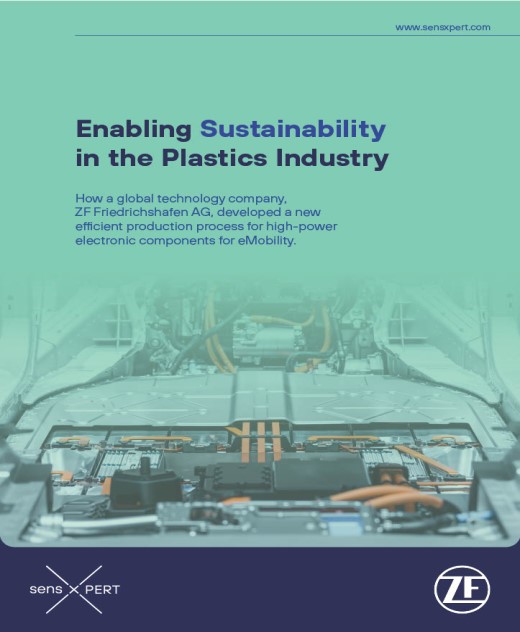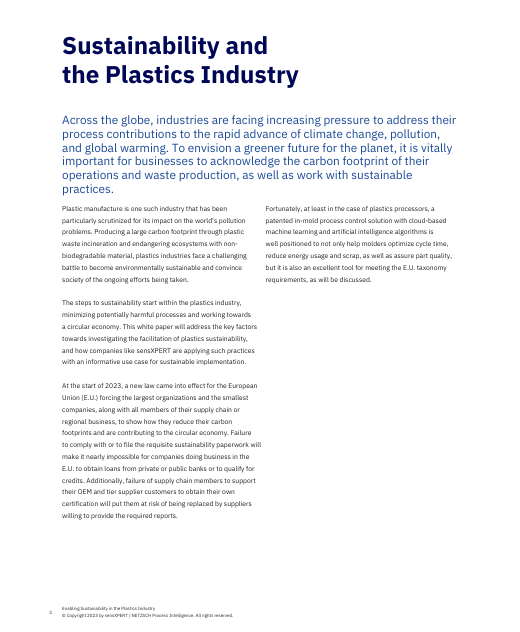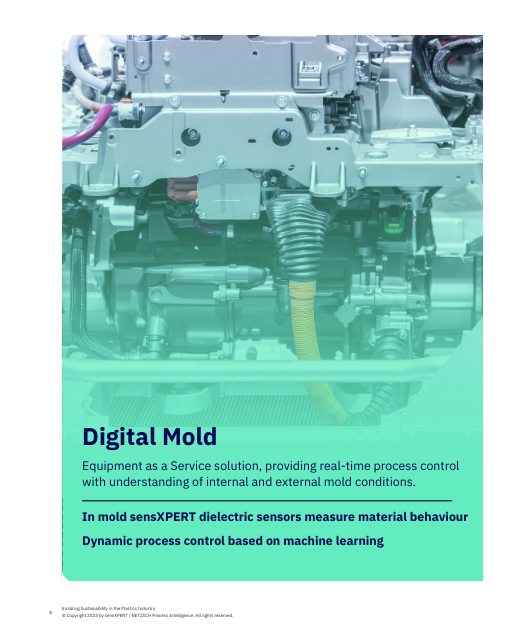Enabling Sustainability in the Plastics Industry
How the European Green Deal’s impact and strategies for sustainable, cost-effective plastics production under new taxonomy.
Introduction
Across the globe, industries face increasing pressure to address their process contributions to the rapid advance of pollution and global warming. Therefore, the European Green Deal came into effect in 2023, forcing companies to show how they reduce their carbon footprints and are contributing to the circular economy.
The included taxonomy legislation increases reporting requirements and ties the ability to improve sustainability over time to financial market access. Given the challenges the plastics industry currently faces—with unstable energy costs, limitations in quality assurance, deviations in material behavior, supply shortages, and lack of access to skilled workers—failure to meet taxonomy requirements will put companies at a severe disadvantage.
Processors who invest in technology, such as sensXPERT Insight, to make their manufacturing operations more sustainable and transparent will find it much easier to meet the taxonomy reporting requirements and ensure they keep their customers.
What’s inside?
- European Green Deal, E.U. Taxonomy Regulation and Sustainable Finance: Key elements and effects on the plastics industry
- Impact on plastics processors: Dealing with the challenge of a sustainable, yet cost-effective production
- sensXPERT: The Solution to More Sustainable Manufacturing
- Case Study: How a global technology company, ZF Friedrichshafen AG, developed a new efficient process and improved its sustainability
- 5 Steps towards Sustainable Production
Leave your contact information below and someone from our team will reach out to discuss your requirements.
Someone from our team will be in touch shortly.
Thank you for your interest!


